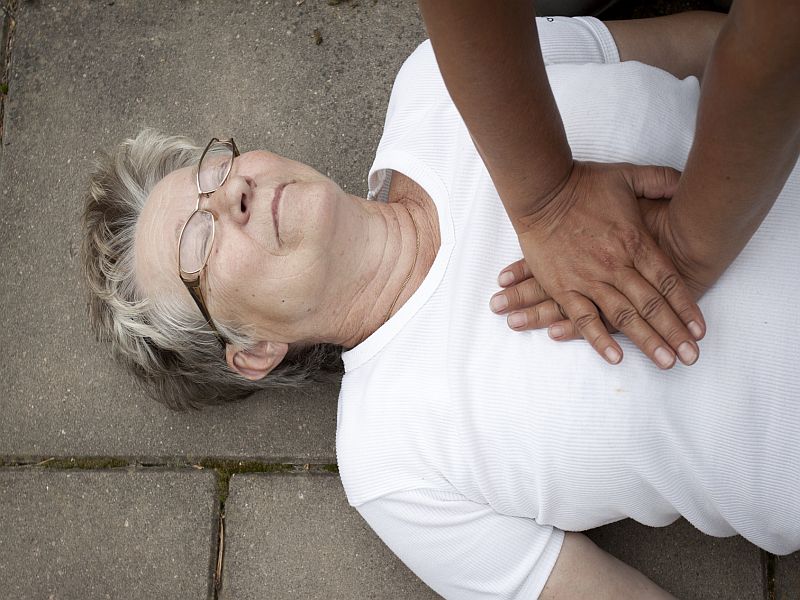
Tuesday, November 15, 2016


TUESDAY, Nov. 15, 2016 (HealthDay News) -- Fewer than one in five American adults has current training in CPR, and that rate is even lower among older adults, a new study finds.
Immediate CPR (cardiopulmonary resuscitation) after sudden cardiac arrest can double or triple a person's chances of survival. In cardiac arrest, a person's heart suddenly stops beating.
A telephone survey of more than 9,000 adults 18 and older found that only 18 percent were currently trained in CPR delivery. About 65 percent said they had received CPR training at some time.
The likelihood of ever having had CPR training was 43 percent higher among those with higher levels of education and 7 percent higher among those with higher household incomes. Adults 50 and older were half as likely to be CPR-trained as younger adults.
"Cardiac arrest occurs among people in their 50s and 60s, and most cardiac arrests occur in the home, yet that is the population that is poorly trained or has not kept up with current training," said senior study author Dr. Benjamin Abella. He directs the Center for Resuscitation Science at the University of Pennsylvania in Philadelphia.
The study was presented Saturday at the annual meeting of the American Heart Association (AHA), in New Orleans.
If a key link in the chain of survival with cardiac arrest is the bystander response -- including use of automatic external defibrillators and delivery of CPR -- then much work is needed, Abella said in an AHA news release.
"We really need to better understand what gets bystanders to act, what gets bystanders to learn and refresh their CPR skills and the current ways to seek training in any given community," Abella added.
In another study presented at the meeting, researchers surveyed adults 65 and older in Denmark and found many reluctant to perform CPR. Most cited lack of knowledge and a fear of causing harm.
Asked what they would do if they witnessed a cardiac arrest, 85 percent of respondents said they would be willing to call the Emergency Medical Services. Roughly 35 percent would provide rescue breaths, chest compressions or use an automated external defibrillator. However, only 15 percent said they would be willing to do all of the above, according to the study.
"We do believe there needs to be a special focus on the elderly," said study author Lise Qvirin Krogh, a research fellow at Aarhus University Hospital in Denmark. "Calling the EMS is a very big step in the right direction, but they can help the victim much more by also starting CPR."
Krogh called it "surprising" that only about 35 percent of respondents would actually start CPR.
"The willingness to perform CPR is very dependent on the knowledge about CPR," Krogh said. "With this study, we can get closer to strategies to increase the knowledge about CPR and focus CPR training among the elderly."
Research presented at meetings is usually considered preliminary until peer-reviewed for publication in a medical journal.
SOURCE: American Heart Association, news release, Nov. 12, 2016
HealthDay
Copyright (c) 2016 HealthDay. All rights reserved.
News stories are provided by HealthDay and do not reflect the views of MedlinePlus, the National Library of Medicine, the National Institutes of Health, the U.S. Department of Health and Human Services, or federal policy.
- More Health News on:
- Cardiac Arrest
- CPR




























.png)












No hay comentarios:
Publicar un comentario